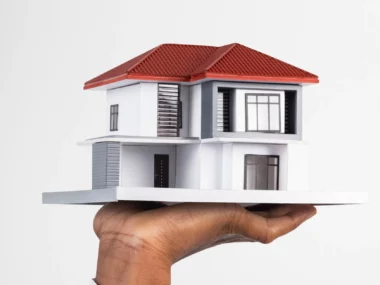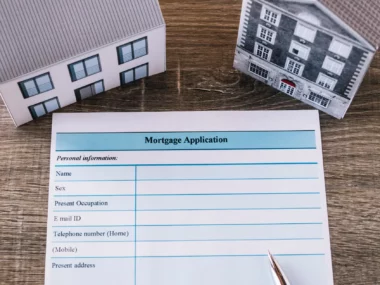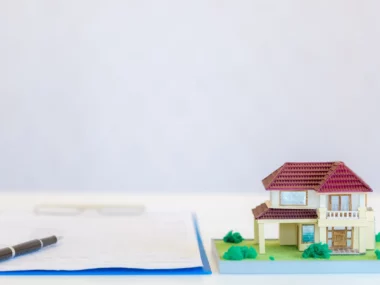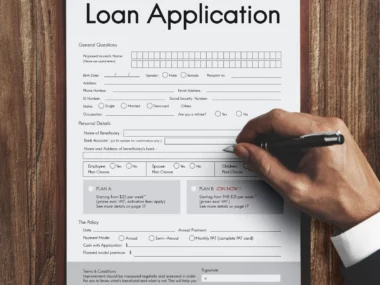Table of Contents
In most countries, when people are trying to get a home but don’t have the money to do so, they usually have the option of taking a home loan.
This is the type of loan that you can apply for to purchase your dream home, and then refund later.
However, due to certain parameters that surround home loans, not everyone qualifies for them. This is where FHA loan comes in.
The FHA loan has been around for a long time and is regarded as the oldest and most popular low down payment mortgage for first-time home buyers.
The FHA was founded as part of the National Housing Act of 1934 to give US renters better lending options for purchasing a home.
If you’re not familiar with this type of loan, this is your lucky day, as we will be taking a serious look at FHA loan how to apply for it, its requirements, and so much more.
Without further ado, let’s dive into what FHA loan is all about.
What is an FHA Loan?
A Federal Housing Administration (FHA) loan is a government-backed home loan that allows you to put less money down (3.5% down payment) even when you have bad credit. It is set up to help low income families own a home and it is very popular among first time buyers.
More About the FHA Loan
The FHA loan comes with requirements that are way more flexible compared to a conventional lender.
It should however be noted that the FHA’s flexible requirements and easier approval guidelines come with extra costs and rules that you need to be familiar with before deciding that it is the best option for you.
The FHA loan follows the lending rules set by the U.S. Department of Housing and Urban Development (HUD).
Another thing to know about this type of loan is that the borrower is expected to pay two types of mortgage insurance to protect the FHA-approved lender against losses if the borrower decides to stop making payments.
How to get a Federal Housing Administration (FHA) Loan
Now that you know what an FHA loan is, let’s discuss the steps involved in getting it.
1. The first step is to confirm if you’re eligible for the loan, and eligibility boils down to requirements such as possessing a credit score of 500 or higher, a confirmable employment history and income, and a debt-to-income (DTI) ratio of 43% or lower.
2. After confirmation, the next step is to find out the limit of the amount you are allowed to borrow, and this often depends on your property type and where you reside.
3. Thirdly, examine the amount you are earning presently, your expenses and savings, and use that to determine how much you can afford to spend on a house.
4. Next, shop for FHA- approved lenders and make comparisons so as to get the one that best suit your needs.
5. Next, compile your documents and apply for an FHA loan. Ensure to prepare documents such as two years of tax returns, two recent pay stubs, your driver’s license, full statements of your assets, e.t.c.
6. The final step is to compare offers to ensure you are getting the best deal.
FHA Loan Requirements
Just like a lender would when you’re applying for a regular home loan, you can expect your FHA-approved lender to check thoroughly if you qualify for an FHA loan. The lender checks the validity of your Social Security number, your resident status, and your age.
Although, the criteria for getting an FHA loan is flexible, there are some strict requirements. They are:
1. Credit Scores and Down Payments: As a borrower, if your credit score is between 500 and 579, you will have to drop a down payment of 10% before you can get an FHA loan but if it is 580 or higher, you can get an FHA loan with a down payment of 3.5%.
2. History of Settling Debts: Before an FHA-lender can approve a loan for you, there will be a thorough perusal of your history of settling debts, whether it is utility or rent payments. If the lender discovers a previous payment default, it may cost you your approval.
3. Evidence of Stable Employment: To be sure that you can repay the loan, the lender will want to ensure that you have a current and steady employment.
4. Adequate Income: An FHA-approved lender also ensures that your other financial commitments and monthly or annual expenses take less than 31% of your gross income.
Advantages of an FHA Loan
1. Unlike a conventional home loan, a credit score of as low as 580 is enough go get you an FHA loan.
2. To get an FHA loan, you can make a down payment of as little as 3.5% even if your credit score is as low as 580. With a credit score of between 500 and 579, you might still qualify for this loan but you will have to pay a 10% down payment which is still really advantageous compared to a conventional home loan.
3. An FHA loan also lets you own a home quicker as you won’t have to save for a long time.
Disadvantages of an FHA Loan
1. One of the disadvantages of FHA loan is that, since both your credit score and down payments are low, you would need to take out a home loan insurance. This is to help protect the lender if you’re not able to make the payments at the end of the day.
2. An FHA loan places a limit on the price you can spend on a property. Also, you are mandated to live in the property that you use the loan to purchase, you can’t use it as a vacation home or an investment property.
Applying for an FHA loan with bad credit
As it has already been established, having a bad credit doesn’t necessarily stop you from getting an FHA approved loan but there are certain steps that you would have to take to make things happen. They are:
1. Check your credit report to make sure you don’t have any outstanding debt.
2. Another step to take is to make a budget so you can determine how much you can afford to spend on a home.
3. Also, try to put together a large sum of money which you can put down as a big down payment. This will help increase your chances of getting an FHA loan.
FHA Loan for Investment Property
Although, FHA loans are not given out those who wish to purchase an investment property, there are loopholes that can be explored by borrowers.
1. One of the loopholes is that since a borrower is expected to occupy the purchased property as his or her primary residence for at least 12 months, the borrower could buy the home, live there for 12 months and then rent it out afterwards.
2. Another way around it is to buy a small multifamily property with 2-4 units and live in one of the units while renting out the other units.
3. You could also refinance an existing FHA loan with another FHA loan, even if you no longer use the home as a primary residence.







2 comments
Премиум база для Xrumer https://dseo24.monster/premium-bazy-dlja-xrumer-seo/prodaetsja-novaja-baza-dlja-xrumer-maj-2023/
Лучшая цена и качество.
how much is viagra in mexico